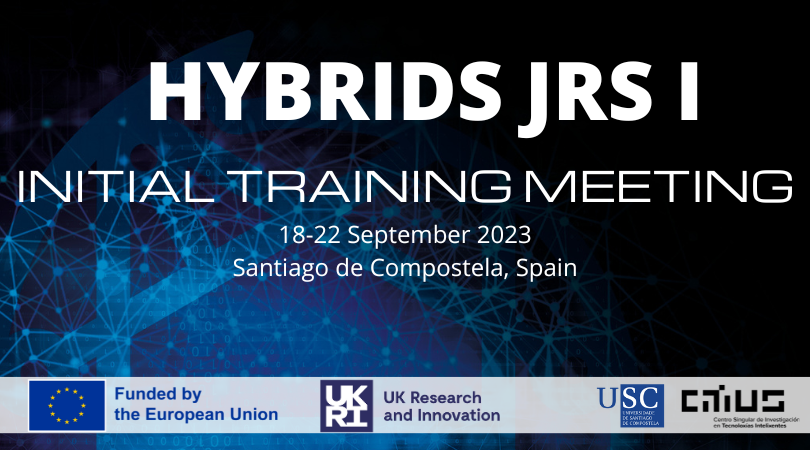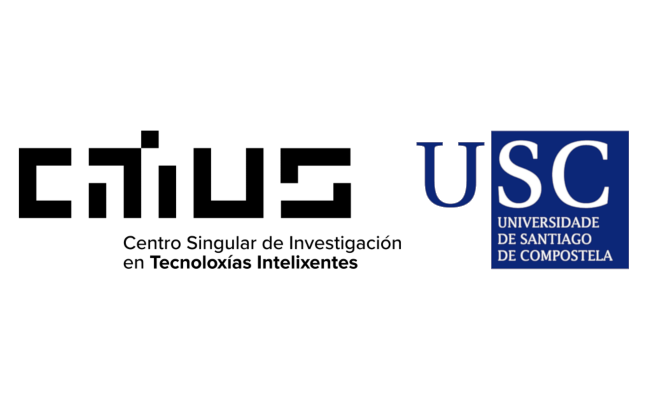
Hybrid Joint Research Seminar I: Initial Training Meeting
This initial interaction will serve to kickstart activities and the establishment of a network among the chosen participants, facilitating acquaintanceship within each subgroup and the commencement of their research endeavors.
On the first day, the HYBRIDS project will be introduced to all doctoral candidates, along with an overview of each distinct work package. Additionally, each candidate will deliver a presentation lasting between 10 and 15 minutes, addressing aspects such as the background of their research, the relevance of their idea to HYBRIDS, and the specific theme of their doctoral work.
The day will conclude with two courses. The first, conducted by Arkaitz Zubiaga, a supervisor and researcher at Queen Mary University of London, will focus on providing an introduction to the detection of fake news. The second workshop, centered on an introduction to hate speech, will be conducted by Sara Tonelli, a researcher at Fondazione Bruno Kessler.
Throughout September 19, César González-Pérez, the head of the Semantic Technologies and Cultural Heritage research line at the Institute of Heritage Sciences (Incipit, CSIC), will lead a course on discourse analysis methodology. Lastly, doctoral candidates will benefit from personalized mentorship provided by their respective supervisors.
A step forward in the HYBRIDS project
For the initial two days, the attendees will exclusively comprise the doctoral candidates and their supervisors. However, commencing from Wednesday the 20th, candidates from the doctoral network “Interactive Natural Language Technology for Explainable Artificial Intelligence” (NL4XAI) will join the event. This network aims to address the challenge of making artificial intelligence “self-explanatory,” thereby contributing to translating knowledge into products and services for economic and societal benefit. The network is also a participant in the European Union’s Horizon 2020 research and innovation program, operating under the framework of the Marie Skłodowska-Curie grant agreement.
On that day, the Galician Business-University Foundation (FEUGA) will deliver a conference on scientific communication—the second part of which will occur on the following day—and María Pacheco, researcher from the University of Colorado Boulder, will delve into the topic of neurosymbolic strategies. The schedule also includes tutorial sessions and a cultural visit to explore the heritage of the University of Santiago de Compostela.
On Thursday, the 21st, a roundtable discussion on the challenges posed by large-scale linguistic models will take place. The event will conclude on the final day with a course led by Martín Pereira, a Philosophy doctorate holder from USC, on corpus annotation, followed by a concluding discussion.
Through this gathering, the HYBRIDS project takes another stride forward, with the aim of promoting research in the realm of artificial intelligence applied to the identification of fake news, hate speech, and misinformation, among other pertinent topics.
Click here to download the Full Programme.
Registration is closed.
Hourly Schedule
Day 1: Monday, September 18
- 9:00 - 9:10
- Opening
- 9:10 - 10:45
- Presentation of the project and the WPs, Leader of each WP.
- 10:45 - 11:15
- COFFEE BREAK
- 11:15 - 13:00
- Presentation of all DCs
- 13:00 - 14:30
- LUNCH
- 14:30 - 16:00
- Generalisation in social media research: From fact verification to abusivelanguage detection
- 16:00 - 17:30
- Introduction to the detection and analysis of online hate speech
Day 2: Tuesday, September 19
- 9:00 - 10:45
- IAT/ML, a Methodology for Combined Discourse Analysis, Incipit-CSIC
- 10:45 - 11:15
- COFFEE BREAK
- 11:15 - 12:00
- IAT/ML, a Methodology for Combined Discourse Analysis, César González,Incipit-CSIC (part2)
- 12:00 - 13:00
- Navigating Rights and Responsibilities: A Guide for MSCA Hybrids DoctoralCandidates
- 13:00 - 14:30
- LUNCH
- 14:30 - 17:30
- Separate meetings between each DC and their supervisors
Day 3: Wednesday, September 20
- 08:45 - 09:00
- Opening NL4XAI & HYBRIDS
- 09:00 - 10:45
- Science Communication-Expanding Knowledge and Practice
- 10:45 - 11:15
- COFFEE BREAK
- 11:15 - 13:00
- Mentoring session (Part 1: Project Presentations and Group Formation:)
- 13:00 - 14:30
- LUNCH
- 14:30 - 16:30
- Mentoring session (Part 2: Group Work and General Discussion:)
- 16:30 - 17:30
- An overview of neuro-symbolic strategies for natural language processing
- 18:00
- Cultural visit to the USC heritage
Day 4: Thursday, September 21
- 09:00 - 10:45
- Science communication-Expanding knowledge and practice
- 10:45 - 11:15
- COFFEE BREAK
- 11:15 - 13:00
- Round table: Challenges of large language models and explainable artificialintelligence to deal with polluted information
- 13:00 - 14:30
- LUNCH
Day 5: Friday, September 22
- 10:00 - 11:45
- Corpus Annotation: Basic Steps to Plan an Annotation Campaign
- 11:45 - 12:15
- COFFEE BREAK
- 12:15 - 13:00
- Final discussion and farewell

